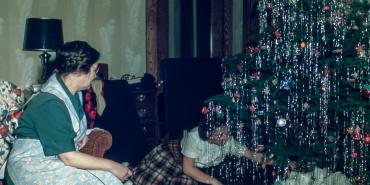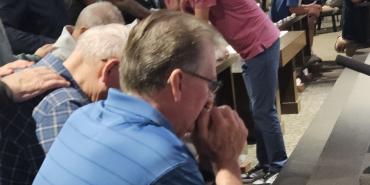The Congregational Archive

The Church of the Nazarene's approaching centennial is a good time to consider the role of congregational archives. A congregational archive has a distinct purpose: to preserve essential records and additional documents necessary for telling the congregation's story.
The first thing needed to create a congregational archive is a small dedicated band of volunteers. A committee of three is ideal. The next thing needed is a secure location with restricted access (a locked room or file cabinet). Since preservation is the point, archives collections cannot simply be left where anyone can take them. Access should be restricted to a few people who are allowed to act as "gatekeepers." Items should only be removed from the archives with their knowledge, and they need to act as "a guilty conscience" to insure that items borrowed for use are returned in a timely way. The location should be secured from rodents and insects, and air-conditioned so that humidity does not degrade materials over time.
What should be collected? The church board minutes are a congregation's most important documents. They reflect decision making within the church. The minutes of other organizations are also desirable, including those of the local Nazarene Youth International and Nazarene Missions International societies. Membership rosters and records showing marriages, funerals, and baptisms within the church are also valuable information.
Beyond these essentials, congregational archivists should collect representative pieces that will convey to future generations some sense of church life today. This may include a photographic record of a church's history, such as photos of pastors and their families and congregational events. Since worship patterns change over time, worship folders and sound recordings from holy seasons and days (such as Advent, Christmas, Lent, and Easter) will convey a sense of how these special times in the Christian calendar were observed. A church should also include a sampling of folders, video recordings, and other materials that convey a sense of worship during ordinary times.
Ask yourself: If I were living 50 years from now and charged with writing the history of this local church, what would I need to understand the congregation's life and story? Let your answer to that question help guide decisions about what to collect.
For more information on this topic, visit the Nazarene archives on-line at nazarene.org.
Stan Ingersol is manager of the Nazarene archives at the International Headquarters of the Church of the Nazarene.
Holiness Today, January/February 2006
Please note: This article was originally published in 2006. All facts, figures, and titles were accurate to the best of our knowledge at that time but may have since changed.




